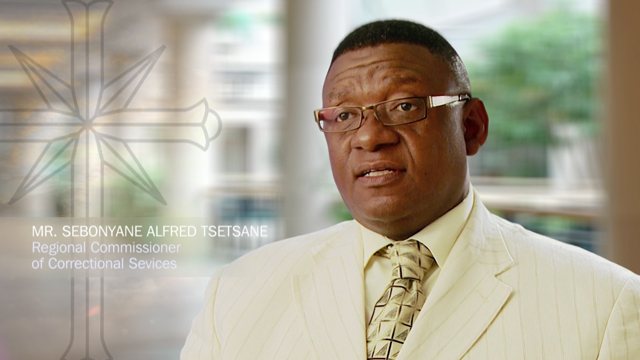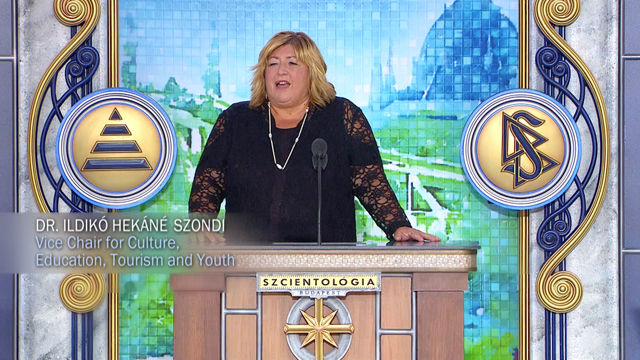Joseph K. Grieboski is founder and president of the Institute on Religion and Public Policy, an international, interreligious, nonprofit organization dedicated to ensuring freedom of religion as the foundation for security, stability and democracy. A committed human rights activist, he states that “The Church’s emphasis and focus on human rights education has a tremendous impact.” When people truly understand their own rights, he says, “This is liberation. It’s spiritual liberation. It’s actual liberation and it’s political liberation. And that’s a great contribution that the Church has made, not just in the United States but around the world.”
He concludes that “Mr. Hubbard’s research and recognition that we are spiritual beings is something that provides people with a real sense of a place in a crazy world.”
Video Transcript:
The Church of Scientology is recognized as one of—if not the—fastest-growing churches, religious organizations, in the world. The Church has done an amazing job of reaching out to people in need across the board in what they need the most, whether it’s educating and enlightening on human rights, to assisting people on drugs, people who have been criminals, to help pull up the lowest of the low and help them to find themselves and have an opportunity. And the Church has done an amazing job and that’s recognized. It’s recognized across the board, not just officially with recognitions and awards, but just by people on the street every day who recognize the great work that the Church has provided.
The Church’s emphasis and focus on human rights education has a tremendous impact. I deal with human rights and religious freedom issues every day and I have never ceased to be amazed by the ignorance—which I say not in a pejorative sense, but in an actual definitional sense—of people on what their rights are or are not. People don’t understand what human rights are. People don’t understand what their own basic rights are. And simply by pointing out to someone that they have a right to choose their faith, they have a right to meet with others, they have a right to speak their mind, they have a right to write what they want to write—this is liberation. It’s spiritual liberation, it’s actual liberation and it’s political liberation. And that’s a great contribution that the Church has made, not just in the United States but around the world.
The Church does an excellent job of providing people with tools that allow them to express themselves, that allow them to find who they are, what they are, and what they want to be—and then use those tools to express that and to reach for that. The simple hope that comes out of that is probably the greatest gift that the Church provides. In 25 years, we have seen an explosive expansion of the Church. Just the opening of the Ideal Orgs is a tremendous accomplishment of the Church. But it’s that explosion, it’s that growth, it’s that development doesn’t happen for nothing.
People wouldn’t be joining the Church, people wouldn’t be reading the Basics, people wouldn’t be signing up for courses, people wouldn’t be visiting the websites if there wasn’t something that they wanted to know, if there wasn’t something that the Church provided answers to. Nothing happens in a vacuum, and the Church helps to fill that vacuum, both with the Tech itself but then also with the real-world social justice programs that the Church carries out on a daily basis.
Working with religious freedom and human rights, I often discover that members of religious communities really don’t know what’s going on within their own communities, but also what’s happening to their co-religionists overseas. This is not a problem I have with the Church. One of the great things about the Church is that the community is informed, the members are engaged. I have never come across a Scientologist who doesn’t know what’s happening in the Church, who doesn’t know how the Church is faring in Europe or Africa or Asia. Because they’re engaged, they’re interested, they’re educated. And you know it becomes a great ease for people like me who work with religious communities overseas to find people who actually want to help their own community, who actually believe that their faith needs help in places where it needs help, and they want to do something about it. There is not a religious malaise among Church members.They want to be engaged, they want to be active and that makes all the difference when you work with religious communities like I do.
The Church has been able to provide people with opportunities, opportunities to separate themselves from moral ambiguity. We live in a society today, especially in the United States, where we’re tied up in “ologies.” It’s ideology, it’s political ideology, it’s material ideology, it’s religious ideology. The Church helps people distinguish between what’s really important and the trappings of the world around them. And Mr. Hubbard’s research and recognition that we are spiritual beings is something that provides people with a real sense of a place in a crazy world.


